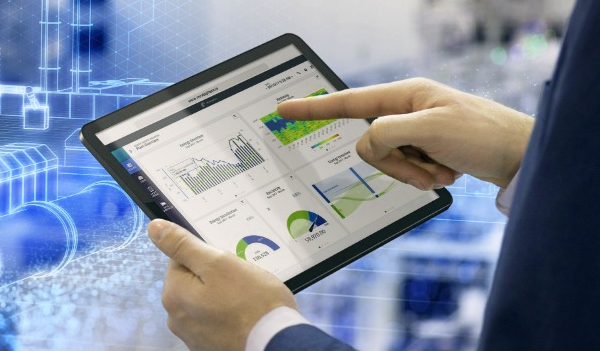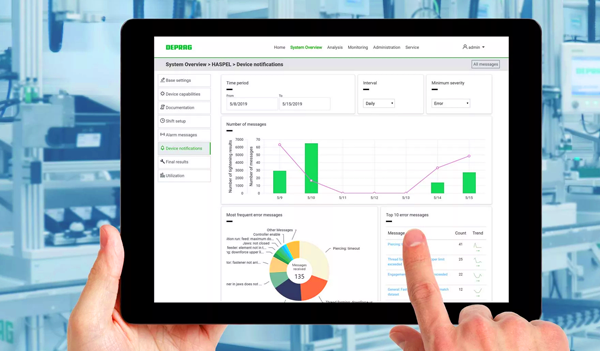In the ever-evolving landscape of manufacturing, where precision and efficiency are the keys to success, a revolutionary force has emerged – Manufacturing Software. In this comprehensive blog post, we’ll take a friendly stroll through the world of Manufacturing Software, exploring its definition, features, and how it’s becoming the driving force behind modern manufacturing processes.
What is Manufacturing Software?

The Digital Maestro of Production
Manufacturing Software, often referred to as Manufacturing Execution System (MES) or Enterprise Resource Planning (ERP) for manufacturing, is a digital solution designed to streamline and optimize various aspects of the manufacturing process. It acts as a central nervous system for manufacturing operations, integrating data, processes, and people into a unified platform. The goal is clear – to enhance efficiency, reduce costs, and empower manufacturers to deliver high-quality products on time.
Navigating the Features of Manufacturing Software
1. Production Planning and Scheduling
Manufacturing Software brings precision to production planning. It enables manufacturers to create detailed production schedules, allocate resources efficiently, and optimize workflows. This ensures that production is aligned with demand, minimizing bottlenecks and maximizing efficiency.
2. Inventory Management Mastery
Efficient inventory management is a cornerstone of successful manufacturing. Manufacturing Software provides real-time visibility into inventory levels, helping manufacturers track raw materials, work-in-progress, and finished goods. This reduces the risk of stockouts, overstock situations, and ensures smooth production flows.
3. Quality Control and Assurance
Maintaining product quality is non-negotiable in manufacturing. Manufacturing Software includes robust quality control features, allowing manufacturers to set quality standards, track defects, and implement corrective actions. This ensures that every product meets the specified quality criteria.
4. Shop Floor Visibility
Manufacturing Software acts as a digital eyes and ears on the shop floor. It provides real-time visibility into production processes, allowing managers to monitor machine performance, track work orders, and identify areas for improvement. This visibility is crucial for making informed decisions on the fly.
Why Manufacturers Need Manufacturing Software

1. Precision in Production Planning
Manufacturing involves complex processes, and precise planning is essential. Manufacturing Software brings order to this complexity, allowing manufacturers to create detailed production plans that align with demand forecasts, resource availability, and delivery timelines.
2. Cost Efficiency and Control
Cost overruns are a constant concern in manufacturing. Manufacturing Software provides real-time cost insights, allowing manufacturers to track expenses, optimize resource usage, and make data-driven decisions to ensure that production remains cost-effective.
3. Enhanced Productivity
Manufacturing Software is designed to enhance productivity by optimizing workflows, reducing manual errors, and automating routine tasks. This allows manufacturers to achieve more with the same resources, boosting overall productivity.
4. Regulatory Compliance
Manufacturing is subject to various regulations and quality standards. Manufacturing Software includes features to ensure regulatory compliance, helping manufacturers adhere to industry standards and avoid penalties or setbacks due to non-compliance.
Implementing Manufacturing Software: A User-Friendly Guide
1. Assessing Your Manufacturing Needs
Before delving into the world of Manufacturing Software, it’s crucial to assess your manufacturing needs. Are you a discrete manufacturer with specific production processes, or do you engage in continuous manufacturing with high-volume production runs? Understanding your unique requirements will guide your choice of Manufacturing Software.
2. Choosing the Right Manufacturing Software Solution
The market offers a variety of Manufacturing Software solutions, ranging from specialized MES to comprehensive ERP systems. Choose a solution that aligns with the scale and complexity of your manufacturing operations. Look for features like production planning tools, inventory management, and quality control functionalities.
3. Customization for Your Manufacturing Workflows
No two manufacturing processes are identical. Manufacturing Software solutions are designed to be customizable, allowing you to tailor the system to fit seamlessly with your existing workflows. This customization ensures that the software aligns with your unique manufacturing processes.
4. Training Your Manufacturing Team
Implementing Manufacturing Software requires training your manufacturing team. Choose a system with a user-friendly interface and invest in training programs to ensure that your team is comfortable and proficient in using the software. User adoption is key to realizing the full benefits of Manufacturing Software.
Challenges and Solutions in the Manufacturing Software Landscape
1. Integration with Legacy Systems
For manufacturers with existing systems, integrating Manufacturing Software can be a challenge. However, many software solutions offer tools and support for seamless integration, minimizing disruptions to existing workflows.
2. Resistance to Technological Adoption
In industries with traditional manufacturing processes, there might be resistance to adopting new technologies. A thorough communication plan, showcasing the benefits of Manufacturing Software, and providing comprehensive training can address this challenge.
3. Data Security Concerns
Manufacturing involves sensitive data, and data security is a valid concern. Choosing a Manufacturing Software solution with robust security features, encryption, and compliance certifications is crucial to safeguarding sensitive information.
Realizing the Benefits: Success Stories of Manufacturing Software Adoption
Company A: Achieving Lean Manufacturing Excellence
Company A, a precision engineering firm, implemented Manufacturing Software to achieve lean manufacturing excellence. The software streamlined production planning, reduced lead times, and improved overall efficiency. As a result, Company A experienced a significant reduction in production costs and an increase in customer satisfaction.
Company B: Enhancing Quality Control in Pharma Manufacturing
For Company B, a pharmaceutical manufacturer, Manufacturing Software became the cornerstone of their quality control efforts. The software’s robust quality control features enabled real-time monitoring of production processes, ensuring compliance with stringent regulatory requirements and enhancing overall product quality.
The Future of Manufacturing Software: Trends and Innovations
1. Advanced Analytics and AI Integration
The integration of advanced analytics and Artificial Intelligence (AI) is on the horizon for Manufacturing Software. This promises to elevate the software’s capabilities in data analysis, predictive modeling, and decision-making, providing manufacturers with unprecedented insights.
2. IoT for Smart Manufacturing
The Internet of Things (IoT) is making its way into manufacturing. Manufacturing Software of the future might integrate with IoT devices on the shop floor, enabling real-time monitoring of machines, predictive maintenance, and even supply chain optimization.
3. Cloud-Based Manufacturing Software Solutions
As manufacturing becomes more globalized, cloud-based Manufacturing Software solutions are gaining traction. These solutions offer flexibility, scalability, and real-time collaboration across geographically dispersed manufacturing facilities.
Conclusion
In the intricate dance of gears and assembly lines that is modern manufacturing, Manufacturing Software emerges as the choreographer, orchestrating precision, efficiency, and quality. It’s not just about managing production; it’s about transforming the way manufacturers operate.
Whether you’re a small-scale producer or a large-scale manufacturer, consider Manufacturing Software as your strategic ally. Streamline your production processes, optimize workflows, and embrace the future with the digital prowess of Manufacturing Software. It’s time to craft tomorrow, one efficient production run at a time!
Lihat Juga:
- Construction ERP
- Acumatica ERP
- Online ERP
- ERP Program
- The Leading 25 Big Data Terms You Ought To Understand
- Ecommerce Business Intelligence: Benefits, Use Cases and Tools